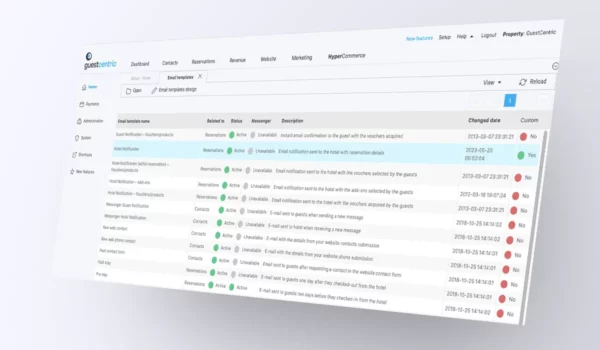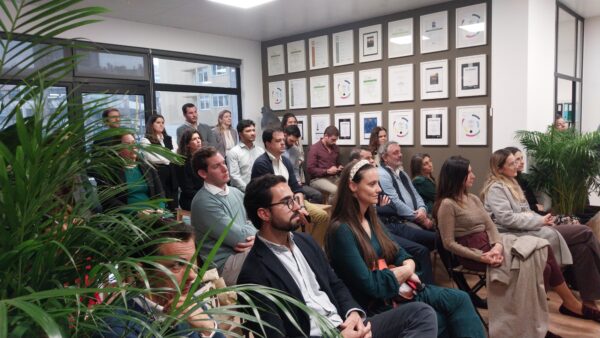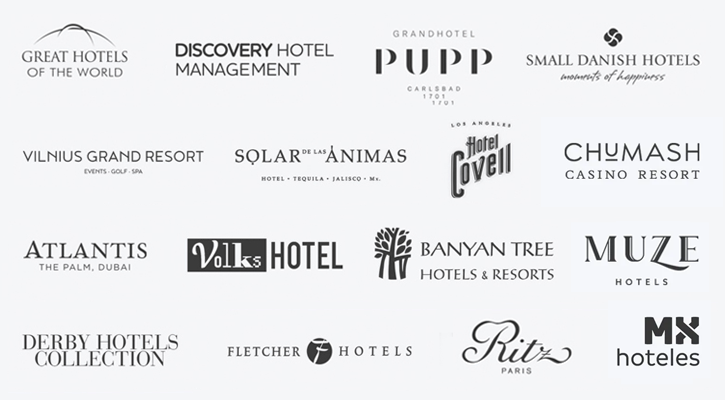Sustainability for Hotels – The Impact on Profitability
Reading Time: 6 minutesNowadays, we see sustainability touted across trade publication headlines and social media. But beyond the buzzword, what does sustainability actually mean, in practical terms, for your hotel? Why does sustainability in travel matter so much now – more than ever – to consumers? Most importantly, how can hotels ensure that they are upholding sustainability standards and effectively communicating them to stakeholders and customers?
In this article, we take a closer look at the implications of sustainability for hotels, including the operational and economic impact, what other hotels and travel/tourism businesses are doing to meet these demands, and how technology can help.
Beyond the buzzword, what does Sustainability really mean for Hotels?
In broad terms, sustainability refers to actions, programs, and initiatives that preserve a particular resource. It umbrellas four main pillars: Environmental, Economical, Social, and Human. For hotels and the wider hospitality, travel, and tourism sectors specifically, sustainable development encompasses the three elements of people, planet and profit (the 3Ps) – implying long-term considerations for all stakeholders. Here is a breakdown:
- Planet: Your hotel must significantly reduce its environmental impact through green best-practices in maintenance, services, logistics, products, and supplies. The core elements revolve around reducing waste, saving energy, and cutting down on water usage.
- Profit: Your hotel needs to be growing and profitable to be deemed economically viable (and therefore sustainable), contributing to the local economy, creating local jobs and, as a result, supporting the local community.
- People: Your hotel must be socially engaged with employees, customers, suppliers and the local community. Social sustainability covers diversity and inclusion, health and safety as well as community impact.
Although in recent years there has been increased discussion around the importance of sustainability for the environment and to improve profitability by reducing operational costs, many companies (including hotels) are still grappling with how they can put sustainability into practice. But nowadays, it’s not enough to jump on the bandwagon and talk the talk. Hotels need to walk the walk – putting their money where their mouth is, by embedding sustainability into their business models.
Why is Sustainability Important for Hotels in the Current Climate?
Research shows that more people want to travel sustainably. In its annual survey on sustainability, Booking.com recently found 71 percent of respondents planned to travel greener, up 10 percent over 2021 results. Not only have travelers grown increasingly focused on sustainability, but governments too. In Europe, large companies and SMEs are already required to collate data in order to report on their sustainability initiatives from 2024 onwards, by defining KPIs and how these are performing year-on-year.
Although your hotel may not yet fall under this mandate, the reality is that the market is ahead of regulamentation. Large corporate clients and publicly listed companies are being pressured to strategize, monitor and report on all their sustainability initiatives. In its turn, their supply chain – including hotels – has to follow, by demonstrating that they are also actively working towards reducing their carbon footprint and improving their communities and employees’ welfare. In practice, that means that they also have to define, measure and report on their initiatives.
Some key players in hospitality, such as Siemens have since announced that they will require hotels to provide data on their sustainability initiatives and their impact, under their Green Stay Initiative. Furthermore, data from Great Hotels of the World shows that all RFPs for member hotels in 2022 included mandatory sustainability criteria for negotiated rates. In cases where corporate clients turned down proposals from hotels, the first reason provided was non-compliance with the client’s sustainability criteria, as opposed to price, availability, or insufficient pricing seasons etc.
Furthermore, the United Nations have launched the 17 Sustainable Development Goals, a valuable framework for any business to use, in order to improve its sustainability record. Some of these goals are clearly more relevant to hotels than others, such as Good Health and Well-Being (3), Clean and Affordable Energy (7), Decent Work and Economic Growth (8), Responsible Consumption and Production (12) or Partnerships for the Goals (17).
Thus, sustainability is no longer a nice to have for hotels, but a critical factor in business, directly impacting profitability.
What are Hotels and Travel/Tourism Companies doing to Promote Sustainability?
Although sustainability has long been a talking point across the global travel, tourism, and hospitality landscape, its importance was notably amplified when global travel came to a standstill in 2020. Businesses took a step back and recognized the importance of sustainability for their staff, but also for their local economies and communities.
The current staffing challenges and concerns around rising costs have also shone a spotlight on sustainability to improve profitability. As such, hotels and companies across the wider travel and tourism industry are now implementing measures and strategies that enable customers to travel and consume goods and services in a more sustainable way.
As part of its overall Sustainability strategy, Great Hotels of the World launched its Sustainable Future Awards in 2022, rewarding and showcasing its member hotels’ initiatives in Sustainability. One example is the Eco Hub Cascais by the Onyria Group of hotels in Portugal – winner of the Sustainable Events accolade at the Great Hotels of the World Sustainability Awards in 2022.
Perfectly aligned with the 17th UN Sustainable Development Goal – Partnerships for the Goals – The Eco Hub Cascais comprises four hotels, located within the same natural park. They share a common vision for environmental policy, going beyond the basics of energy efficiency, recycling programs, and waste reduction. Each of these hotels also offer eco-friendly conference facilities, and they have partnered together to share certain services, such as electric vehicle transportation between the four hotels.
In addition to a number of other sustainable initiatives, another GHOTW member, the Ilunion Hotels, in Spain won the Economic Sustainability Award. They joined forces with Too Good To Go, an App that allows people to order surprise packages of leftover food at discounted prices. In doing so, Ilunion Hotels are proactively mitigating the social, economic and environmental consequences that surround the issue of food waste, and complying with the 12th UN Sustainable Development Goal of Responsible Consumption and Production.
Airlines such as Delta, Qantas, and British Airways offer carbon offsetting programmes that enable passengers to pay or make up for the carbon emissions their flights produce. The client uses a tool to calculate the emissions released on that flight and then buys a carbon credit from a broker to offset that amount of emissions. The broker subtracts its fee and uses the rest of the money to invest in an emissions project, such as a reforestation effort.
How can Hotels be more Sustainable going Forward, and How will it Improve Direct Bookings?
Given the current staffing challenges, from an economic sustainability perspective, technology can significantly reduce operational costs and make your workforce more productive. If one of your sustainability goals is to improve your financial performance, adopting software that automates repetitive admin tasks such as deploying different rates plans or tracking and reviewing reservations and channels, will give your staff more time to add greater value in other areas of the business.
In addition to technologies that make hotel operations and business more productive, hotels are also shifting towards offering “smart hotel rooms” to reduce their carbon footprint and promote environmental sustainability. For example, hotels with smart thermostats give guests easier access to their room’s temperature controls, while saving costs on utility fees. Smart thermostats, like the Google Nest, allow users to set certain temperature settings for specific times of day and access their temperature controls remotely.
Hotels may also want to replace complimentary bottled water (a common practice) to guests, with water dispensers on their property. Some water dispensers today even offer bubbly or flavored drinks, from a single tap, which will upgrade the guest experience and reduce plastic waste.In the future, may see more hotels embed environmental sustainability into their pricing strategies, and a more widespread adoption of the carbon offsetting model..
Hotels can also be more socially sustainable by opting to hire locally, even training non-specialised workforce on property and to and to work with local suppliers as much as possible, in order to contribute more to the community, as well as to save carbon miles.
These are just a few of many sustainability measures hotels may consider implementing, moving forward. Taking action now can help your hotel reduce costs, but also differentiate itself from the competition, thereby attracting more guests. Becoming more sustainable will ultimately enhance your brand and thus lead to more meaningful and relevant communication. This will enable you to build direct relationships with your clients, and encourage direct (and more profitable) business for your hotel.
Conclusion
Whatever your hotel defines as sustainability goals for the future, the key is to strategize why you have selected that particular goal; how you will measure its environmental, economic or social impact – and how you will communicate it effectively, to engage staff, customers and business partners.
The road to sustainability is immensely rewarding, on many levels. It is also a long one, to be taken with the entire team, one step at a time.
And the moment is now.

























